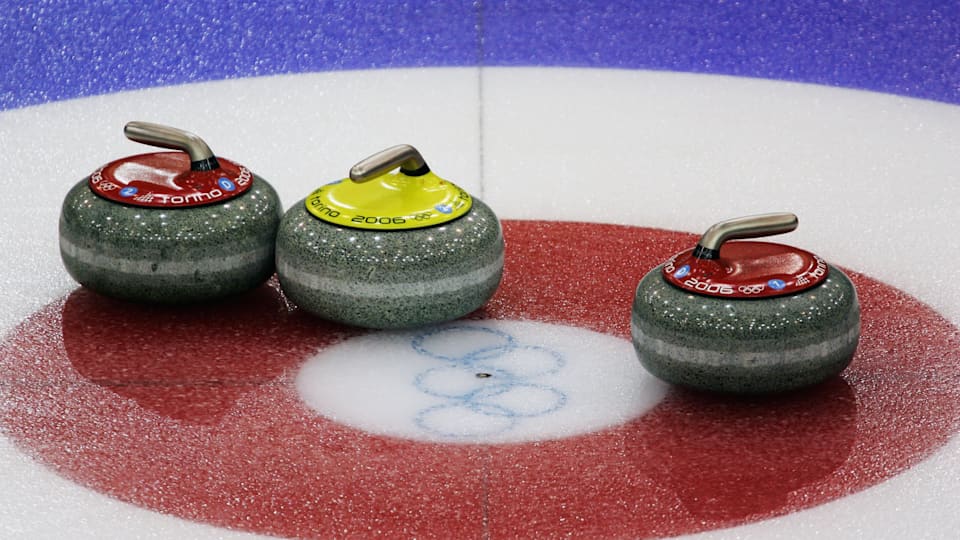
Curling is cool, fool.
That’s right, curling is Mr. T’s favourite winter sport, and it’ll be back on your screens at Lausanne 2020.
If you haven’t caught the curling bug yourself, allow the Youth Olympic Games to hook you in this January.
But first, brush up on your curling knowledge before it sweeps you off your feet.
How to watch curling at Youth Olympic Games
Olympic Channel will stream 300 hours of action from the 13 days of competition in Lausanne 2020 with a dedicated Winter YOG channel available on olympicchannel.com, YouTube and connected devices such as Amazon Fire, Apple TV, Android TV and Roku.
There will be an action-packed daily live show featuring news, highlights, trending stories and interviews in a fun and interactive format streamed on Facebook, Twitter and olympicchannel.com, plus a daily Olympic Channel Podcast featuring insightful interviews with personalities from across the Olympic world.
Fans can also follow Olympic Channel's coverage on Facebook, Twitter, Instagram and YouTube to learn more about the event, while a full schedule of events - including online streaming details can be found here.
Curling location and dates
The curling takes place in Champéry from January 10-22 at Lausanne 2020, with the mixed team competition falling before the mixed doubles competition.
Curling in a nutshell
Reinstated as an Olympic sport in 1998, teams take to the ice sheet with the aim of scoring more points than their opponent.
The teams – featuring either two or four athletes – take turns sending curling stones down the ice, hoping to land it in the middle of a target, known as the house.
DID YOU KNOW: Each curling stone, which weighs 44 pounds (19.96kg), is made of a rare granite quarried on the uninhabited Scottish island of Ailsa Craig.
Brooms help adjust the stone’s movement when the ice is swept, while the team with the closest stone to the centre wins the end. One point is gained for every stone closer than an opponent’s closest stone.
Eight stones are thrown down per team in each end, with a match lasting 10 ends unless it has already been forfeited.
Got that? We hope so. The explainer video below goes into more detail for you, while you can scroll down to find out more about each event at Lausanne 2020.
The Mixed Team Competition
A total of 24 nations have qualified for the group stages of the mixed team competition.
Split into four groups of round-robin matches, the top two teams from each group will reach the quarter-finals. Winning semi-finalists will play in the gold-medal match, with the losers facing off in the bronze-medal match.
With the teams featuring two males and two females, each player sends down two stones per end.
Canada are the reigning YOG champions, while the nation has picked up at least one curling medal at every senior Olympics since its 1998 return.
The 24 nations taking part
Brazil, Canada, China, Czech Republic, Denmark, Estonia, France, Great Britain, Germany, Hungary, Italy, Japan, Korea, Latvia, New Zealand, Norway, Poland, Russia, Slovenia, Spain, Sweden, Switzerland, Turkey, United States
Mixed Team schedule
Friday, January 10
10:00 - 12:15, 14:00 - 16:15, 18:00 - 20:15 - Round Robin Mixed Team Competition
Saturday, January 11
10:00 - 12:15, 14:00 - 16:15, 18:00 - 20:15 - Round Robin Mixed Team Competition
Sunday, January 12
10:00 - 12:15, 14:00 - 16:15, 18:00 - 20:15 - Round Robin Mixed Team Competition
Monday, January 13
10:00 - 12:15, 14:00 - 16:15, 18:00 - 20:15 - Round Robin Mixed Team Competition
Tuesday, January 14
10:00 - 12:15, 14:00 - 16:15, 18:00 - 20:15 - Round Robin Mixed Team Competition
Wednesday, January 15
10:00 - 12:15 – Quarter-finals Mixed Team Competition
14:00 - 16:15 – Semi-finals Mixed Team Competition
Thursday, January 16
10:00 - 12:15 - Finals Mixed Team Competition
The Mixed Doubles Competition
This event sees one male and one female from different nation form a mixed doubles team.
The knockout format is faster-paced, with each team only delivering five stones per end. However, each team places an extra stone before the start of each end, either in front of the house or in the middle of the house.
The player who sends down the first stone also delivers the last, with the other player taking the second, third and fourth turns for that end.
Japan’s Yako Matsuzawa and Switzerland’s Philipp Hösli combined to win YOG gold in 2016. The draw for Lausanne 2020 takes place after the mixed team competition concludes.
Mixed Doubles schedule
Saturday, January 18
10:00 - 12:00, 14:00 - 16:00, 18:00 - 20:00 - Knock-out Mixed Doubles Competition
Sunday, January 19
10:00 - 12:00, 14:00 - 16:00, 18:00 - 20:00 - Knock-out Mixed Doubles Competition
Monday, January 20
10:00 - 12:00, 14:00 - 16:00, 18:00 - 20:00 - Knock-out Mixed Doubles Competition
Tuesday, January 21
10:00 - 12:00, 14:00 - 16:00, 18:00 - 20:00 - Knock-out Mixed Doubles Competition
Wednesday, January 22
09:30 - 11:30 – Semi-finals Mixed Doubles Competition
13:30 - 15:30 - Finals Mixed Doubles Competition
